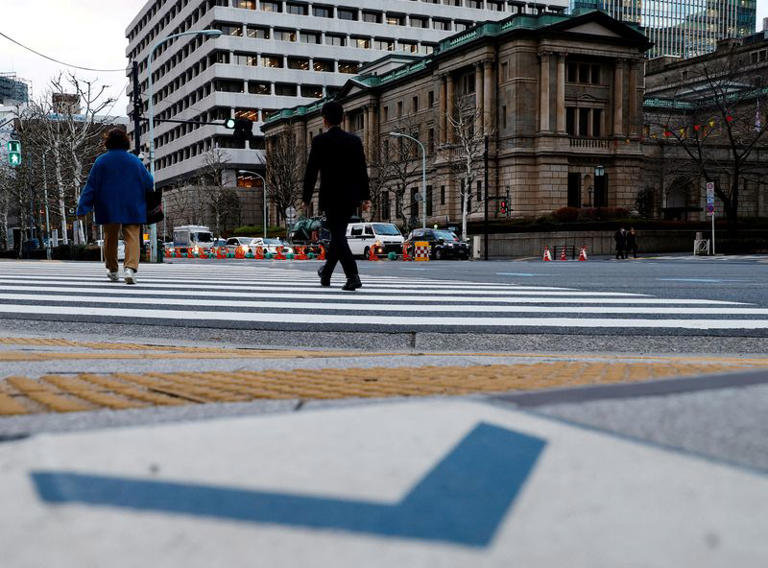The Bank of Japan (BOJ) is anticipated to terminate its negative interest rate policy on Tuesday following substantial wage increases by major companies during this year’s wage negotiations, according to a report by the Nikkei newspaper.
The BOJ initiated internal and external coordination on Friday to conclude its negative interest rate policy, as reported by the economic daily. Japan’s largest corporations agreed to raise wages by 5.28% for the year 2024, marking the most significant pay hikes in 33 years, according to the country’s largest union group.
The level of this year’s wage hikes is deemed sufficient to warrant a change in monetary policy, even by those cautious about modifying the policy, according to sources cited by the Nikkei.
BOJ officials, including Governor Kazuo Ueda, have emphasized that the timing of shifting away from negative rates would hinge on the outcome of the annual wage negotiations between workers and employers.
Sources have informed Reuters that if Friday’s preliminary survey on major firms’ wage negotiations yields strong results, the BOJ will deliberate ending its negative rates next week.
The substantial pay hikes announced on Friday have significantly increased the likelihood of the BOJ discontinuing its negative interest rate policy after eight years, signaling a significant departure from its extensive stimulus program.
With market expectations already pricing in action in March, there is perceived to be no reason for the BOJ to postpone the decision until April, according to government sources familiar with the BOJ’s discussions.
The BOJ, currently in a blackout period, declined to comment on the matter.
A Reuters poll conducted in March indicated that 35% of economists anticipated the BOJ to end negative rates at the upcoming two-day meeting ending on Tuesday, a notable increase from the previous month’s 7%. However, this figure still falls below the 62% of economists projecting such action at the subsequent meeting scheduled for April 25-26.
